Even though it’s been around for thousands of years, acupuncture is still viewed with some skepticism by many people: How can sticking needles in your body actually help relieve pain? It seems counterintuitive.
But research shows acupuncture does help with chronic pain and related conditions. And as far as the technique itself, it’s a lot more complicated than simply “sticking needles” in your skin.
At Jersey Integrative Health and Wellness, our team is skilled in acupuncture techniques used to safely and effectively manage pain, customizing each treatment for long-lasting relief of uncomfortable symptoms. Here’s how this ancient technique works to manage chronic and acute pain.
An ancient technique with modern benefits
Originating in China about 4,500 years ago, acupuncture uses extremely thin needles inserted at precise locations in the body. In fact, traditional Chinese medicine identifies about 2,000 acupuncture points throughout the body.
Today, acupuncture primarily is used to treat chronic or acute pain, including joint and muscle pain, as well as pain from arthritis and syndromes like fibromyalgia. In addition to treating pain, acupuncture can also be used for patients with:
- Digestive problems
- Stress or anxiety
- Insomnia
- Depression
- Migraines
- Premenstrual syndrome
- Muscle tension or cramps
One of the major benefits of acupuncture is that it can help relieve these problems without relying on long-term use of medicines or other, more invasive treatments.
How acupuncture works
Even though plenty of research supports the benefits of acupuncture, how it works is less clear. In fact, researchers aren’t 100% sure how acupuncture works — but they do have some pretty solid theories.
In Chinese medicine, practitioners felt acupuncture works by readjusting the body’s natural energy, or qi (sometimes chi). According to these traditions, energy flows around meridians in the body, creating patterns that support good health. When qi gets “stuck,” it causes pain and other unpleasant symptoms. Acupuncture needles, placed at specific locations along these meridians, help release and readjust qi, so energy flow is restored.
Today, medical researchers think acupuncture works primarily by stimulating natural healing responses. When the very thin acupuncture needles are inserted, they create tiny areas of “controlled damage” that the body recognizes as injuries. This sets up a cascade of healing responses, including beneficial inflammatory and immune responses. At the same time, acupuncture promotes optimal circulation to the area, delivering oxygen and nutrients while carting off toxins.
Most patients benefit from a series of acupuncture treatments to keep healing responses active and engaged. Your treatment plan will be based on your specific needs. Many people find they benefit from twice-weekly appointments for the first month or two, then weekly thereafter.
Feel better — without drugs
Our team offers acupuncture for patients at our practices in Wayne, Jersey City, New Jersey, using a patient-centered approach that’s focused on helping each patient achieve their individual goals. To learn how acupuncture can help you feel better, call the office or book an appointment online today.


